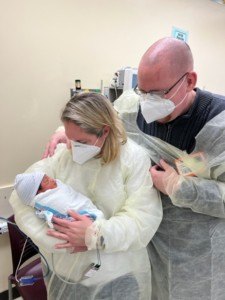
- Pregnancy loss
- Infertility
- Cancer
- Death of a child
Challenges like these spur many to seek adoption and third-party reproduction using donated sperm, eggs, and embryos, and surrogates.
What if people wore signs listing their pain, imagined author Frank Bruni in a New York Times essay. Could we be more compassionate and less envious? I felt as though he had written the piece just for me and for those struggling to become parents.
Could we see underneath the smiling demeanor of an accomplished colleague the hurts she would list on her sandwich board: three miscarriages, five unsuccessful IVF attempts, surrounded by friends and siblings with adorable young children they conceived easily. Without seeing past the surface of success, a wistful admirer might have envied her. Bruni posits that understanding the inevitable pain that we do not know another suffers can make us more understanding and actually help us to feel less sorry for ourselves. The world is full of broken hearts and none of us is alone in experiencing loss.
Prospective adoptive parents with whom I was working for over a year did everything they could to connect with an expectant mother seeking adoption, but struck out. My clients’ sign of sorrows would read: failed fertility treatments; put ourselves in a fishbowl opening up about adoption with our friends, family, doctors, co-workers and acquaintances; spoke for months with an expectant mother about adopting her baby, only to have her change her mind. I suggested that they investigate the possibility of embryo donation and they got on it. This week they called with the extraordinary news that they were pregnant through embryo donation. Talk about compassion! The embryo donors, who went through the anguish of infertility and successfully gave birth to two children through IVF, chose to donate embryos they would no longer be using to an infertile family.
Turning loss into an opening for empathy really does make the world better.
